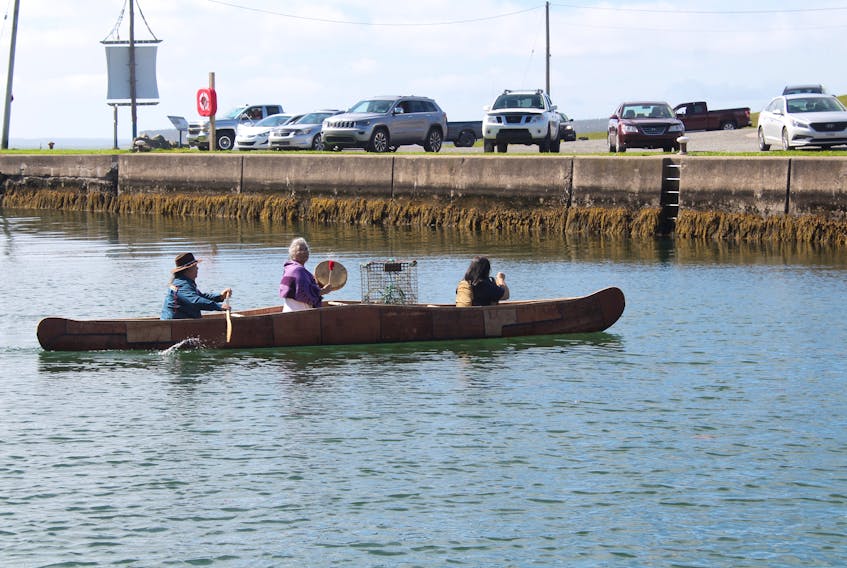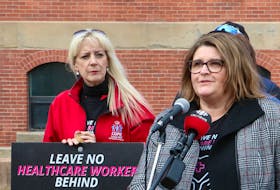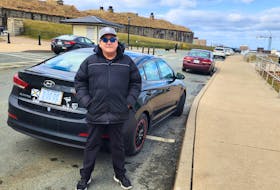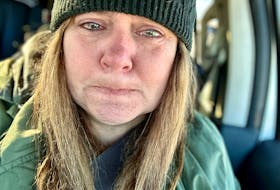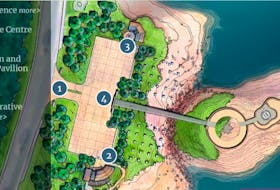In a course I took at the University of Toronto my professor said, “The biggest obstacle to coalitional consciousness building is racism.” The course was a feminist perspective on transnationalism and globalization.
The first time I heard of the word “globalization” was in my second year of university in courses called Latin American history and Latin American revolts and revolutions. Though I had learned about the Aztecs, Incas and Mayans in Ancient Civilizations in Grade 5, the history books I read in Mississauga/Mississaugas of the Credit First Nation territory which treated Indigenous people and communities like they were gone … extinct even!
Going to university and specializing in history allowed me to continue learning about the whole picture of Christopher Columbus’ arrival in the Americas. The common trend of all of these revolutions stemmed from stolen land and the systematic genocide of Indigenous people and communities. The erasure of Indigenous people from public education resources growing up reveals to me the importance of highlighting Indigenous heroes in classrooms and stories of the land (i.e. Mi’kmaq Campfire Stories of Prince Edward Island by Julie Pellissier-Lush).
In 1999, the Donald Marshall Jr. case, the Supreme Court of Canada determined the Mi’kmaq treaty rights to fish for the purpose of earning moderate livelihoods (Sinclair, 2020, October 16; Wikken, 2002). The Peace and Friendship Treaties were signed, and renegotiated 1726, 1749, 1752, 1760-1 (Wicken, 2002).
After seeing the current events in southwestern Nova Scotia, living and teaching in Epekwitk/P.E.I., I feel that racism is the biggest obstacle right now to learning about treaties. As an educator, I have learned through compassion education resources, that “in order to awaken our hearts, we have to open our hearts to suffering” (Brach, 2020). Only when we bear witness to racist people, events, laws and policies can we grieve the loss and suffering of the intergenerational trauma racism and genocide has had on BiPOC (Black, Indigenous and people of colour) and LGBQT2S (lesbian, gay, bisexual, queer, transgender and two-spirited) communities.
Bearing witness through the lens of compassion in order to redress the past wrongs is one way for people to heal, and free themselves, of past trauma. Educating ourselves on who we are and the land on which we live is one of the first steps to realizing we are all treaty people. To give the essence of the perspectives I have heard from Indigenous community members is that the settler nation is like a house guest who comes over and never leaves!
Last year, I attended Sen. Murray Sinclair’s Symons lecture and I asked a question. I asked him what does he say to non-Indigenous teachers feeling they cannot teach about Indigenous history or treaties in the public education system in P.E.I. One impression I got from his answer was that he was confident that teachers entering the classrooms would be equipped to teach about Indigenous history and treaties because we all love our children. Sen. Sinclair wrote a letter on Oct. 16, 2020 to Prime Minister Justin Trudeau to address the racism and violence unfolding in southwestern Nova Scotia. The Chiefs of Lennox Island and Abegweit First Nations have also made a call to action on the Canadian government to uphold the Criminal Code and section 35 of the Constitution Act.
COVID-19 showed me how people living on Epekwitk/Prince Edward Island, Islanders, visitors, newcomers and Indigenous communities could come together to be the highest example of social distancing and self-isolation systems to the rest of the world. So let’s teach our little ones about peace and friendship, and what little things we can do every day to serve the awakening of all hearts on this beautiful land we share through treaties. For more information on treaties in Epekwitk/P.E.I. go to any of L’nuey’s social media platforms.
Michelle Gough is an educator in Epekwitk/P.E.I. who lives in York.

